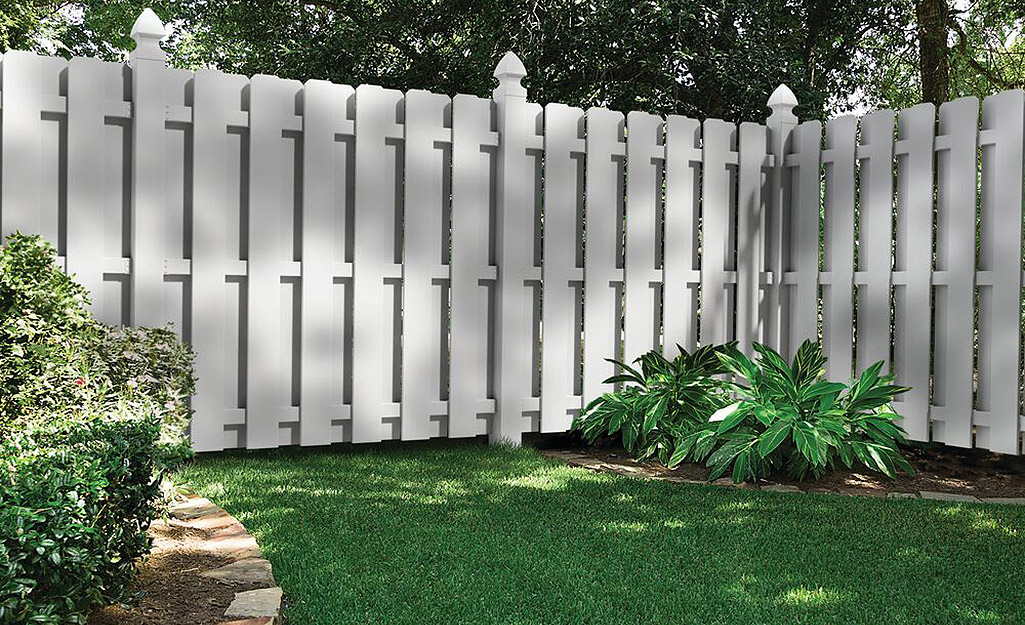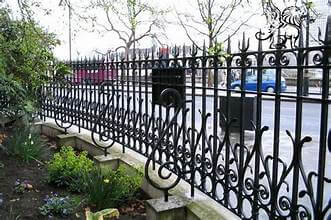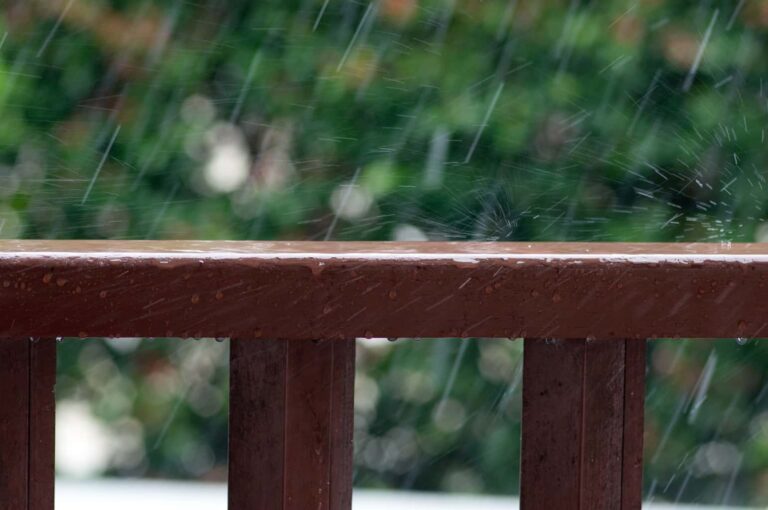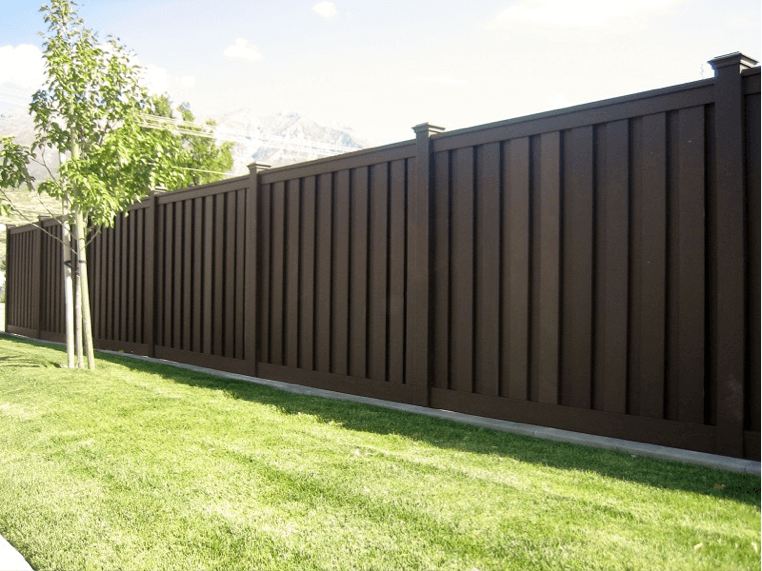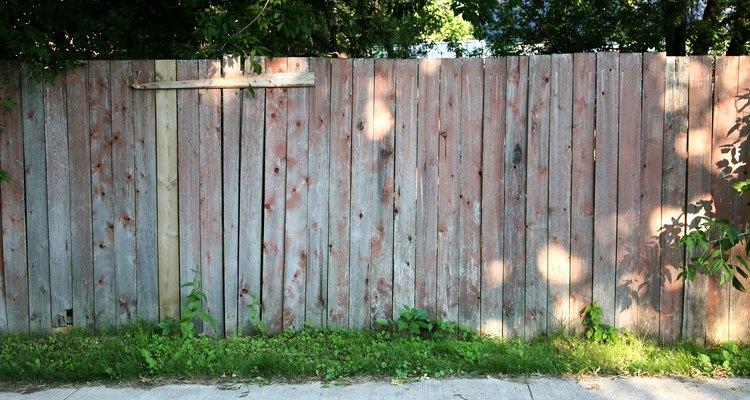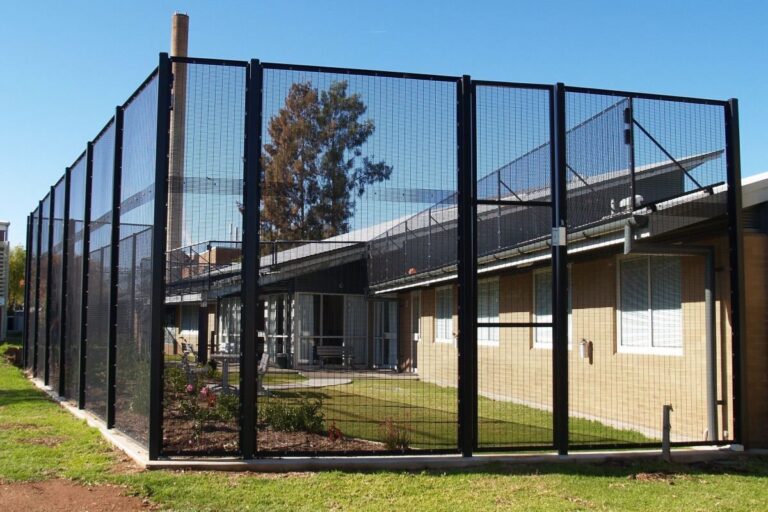Are you considering installing a privacy fence on your property? Privacy fences provide many advantages that can enhance your outdoor living space. Here are the top 10 benefits of installing a privacy fence.
1. Increased Privacy and Seclusion
The primary purpose of a privacy fence is to create a secluded oasis in your yard by blocking views and noise from neighbors or passersby. Tall privacy fences prevent people from being able to see into your yard and home.
This allows you to enjoy complete privacy in areas like patios, pools, and gardens. A privacy fence creates a peaceful retreat right in your own backyard.
2. Define Boundaries on Your Property
A privacy fence clearly delineates the boundaries of your property to prevent unwanted encroachment.
Whether it’s a neighbor’s pet, curious passersby, or delivery drivers, a privacy fence sends a clear message of where your property begins and ends. This can prevent boundary disputes with neighbors down the road.
3. Noise Reduction
Many types of privacy fences can buffer and absorb sound thanks to their solid construction.
This significantly reduces noise from nearby roads, schools, parks, or other homes. The fence blocks and muffles these noises so you can better enjoy the serenity of your yard.
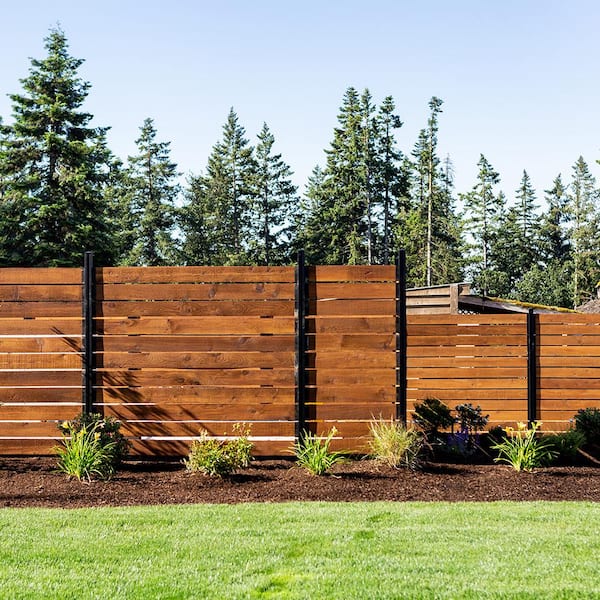
4. Added Curb Appeal and Property Value
Privacy fences with attractive designs, materials, and finishes can greatly enhance the curb appeal of your home.
This also boosts your overall property value, especially if your fence complements your home’s style. Even a simple wooden privacy fence looks classic and polished.
5. Security and Protection
A privacy fence dissuades intruders, trespassers, and criminals by completely obscuring views into your yard.
This protective barrier gives an added sense of safety and security for your family, pets, and possessions. Lights, cameras, and other security systems can also be mounted discreetly inside the fence line.
6. Contain Pets and Children
Pets and kids can stay safely contained within the boundaries of your yard with a privacy fence.
Your fence encloses the space so dogs, cats, and children can’t wander off or escape through gaps onto nearby roads or properties. You’ll have peace of mind knowing your little ones and furry friends are secure.
7. Prevent Trespassing
Depending on the height and material, most privacy fences are very difficult to climb over or see through.
This means people are less likely to cut through your yard or enter without permission. A privacy fence is an attractive deterrent to trespassers.
8. Choice of Materials
Privacy fences come in a variety of aesthetically pleasing materials like wood, vinyl, iron, and masonry.
This allows you to select a style that matches your home and preferences. For instance, you may prefer an elegant wrought iron fence or a natural cedar wood fence.
9. Customizable Height Options
Privacy fences usually range from 6 to 8 feet tall, but can be built even taller to accommodate your needs.
The standard height is typically 6 feet, but a taller 8 foot installation provides maximum seclusion. Special permission may be needed to exceed height restrictions in your neighborhood.
10. Long-Lasting Investment
Unlike a living privacy screen like trees and shrubs, a high-quality privacy fence looks uniform and orderly year after year. Properly maintained fences can last over 15 years.
This makes a privacy fence an investment that enhances your home for years to come with very little upkeep required.
What to Consider When Choosing a Privacy Fence
Installing a privacy fence is a major project that can provide benefits for years when done properly. Here are some key considerations when selecting your privacy fence:
Material Options
The most popular privacy fence materials include:
- Wood – Cedar, redwood, and pressure-treated pine are naturally rot-resistant woods ideal for fencing. Although relatively affordable, they do require regular staining, sealing, and occasional repairs.
- Vinyl – Vinyl is a low-maintenance option that doesn’t need painting. It resists moisture, rot, and insect damage. However, vinyl can become brittle and fade over time.
- Iron – Wrought iron and aluminum provide an elegant, ornamental look. But they tend to be more expensive and require more care.
- Masonry – Block, stone, or concrete have an ultra-solid, sound-blocking effect. The high cost often limits masonry to short accent walls or pillars.
Height and Design
- Typical heights range from 6-8 feet, with 6 feet being most common for backyard installations. Front yard fences are often limited to 3-4 feet.
- A simple vertical board design provides maximum privacy. Or get creative with latticework, architectural accents, and postcaps.
Hiring a Contractor
- It’s best to have a professional fencing company in San Mateo to install your privacy fence unless you have fence construction experience. They can handle permitting and ensure proper installation.
- Get multiple bids and verify they are insured, licensed, and experienced with fence projects. Ask for photos of past work.
Getting Permits
- Most areas require permits and inspections for fences over 6 feet high or on boundary lines. Make sure your contractor handles the permitting process.

What’s the Cost of Installing a Privacy Fence?
Privacy fence costs are determined by:
Materials
- Wood – $15-30 per linear foot
- Vinyl – $20-50 per linear foot
- Iron – $50-100 per linear foot
- Masonry – $35+ per linear foot
Labor
- Installation averages $25-50 per linear foot
- Complex projects with demolition or landscaping add more costs
Other Costs
- Permit fees – Often $25 to $100+ depending on location
- Gate installation – Around $60 per gate
- Removal of old fence – Approximately $5-10 per linear foot
A standard 50 linear-foot wooden privacy fence typically costs $1,500 to $2,500. Expect higher prices for specialty materials like iron or masonry.
Maintaining Your Privacy Fence
Regular maintenance preserves the attractive appearance and function of your privacy fence.
- Clean annually with a pressure washer to remove grime and dirt.
- Reseal and stain wood fences every 2-3 years to protect from moisture damage.
- Inspect for loose boards, damaged posts, peeling paint, and other issues twice per year. Make repairs right away.
- Tighten any loose bolts, screws, and nails. Replace damaged or missing hardware.
- Check for insect damage or tunnels in the wood and treat them appropriately.
- Clear away any vegetation growing on or near the fence.
When is it Time to Replace a Privacy Fence?
Since fences are exposed to the outdoor elements, they do have a limited lifespan. Here are signs it may be time to replace your entire privacy fence:
- Rotting wood that cannot be repaired or extensive termite damage
- Rusting metal components that compromise the structure
- Deteriorating posts or frames that cause the fence to lean or sag
- Weather damage like broken boards from storms
- Changing needs like a taller fence height or gate additions
- Aesthetic reasons like an outdated or unappealing style
Proper maintenance and timely repairs can add years to your fence. But generally expect to replace your entire privacy fence after 15-20 years.
Privacy Alternatives to a Wood or Vinyl Fence
If you decide not to install a traditional privacy fence, consider these attractive alternatives:
Landscaping Privacy Solutions
- Evergreen trees and shrubs create a living wall of privacy when mature. Popular options include arborvitae, bamboo, and laurel hedges.
- Trellises and latticework covered in vines and climbing plants like jasmine provide partial screening while allowing airflow.
Structures and Materials
- Masonry garden walls around patio areas block views while allowing light through openings.
- Attractive wooden lattice panels mounted on posts can be decorated with planters.
- Strategically placed garden sheds, pergolas, or gazebos visually break up sight lines.
Frequently Asked Questions
How Much Privacy Do Fences Really Provide?
The amount of privacy depends on the fence height and material. A 6-foot wood fence blocks ground-level views but may allow second-story windows to peer over. For total seclusion from all sight lines, an 8-foot fence is ideal.
What Are the Best Materials for Privacy Fences?
Solid wood and vinyl are best for privacy and noise reduction. Cedar and redwood resist rot. For a stronger barrier, masonry blocks sound even better but cost more. Iron fences are decorative but don’t block noise or views well.
Do I Need a Permit for a New Fence?
Most areas require permits if the fence exceeds 6 feet tall or is placed right on the property line. Your contractor can pull the needed permits. Front yard fences also often need approval.
Can My Neighbor Make Me Take Down My Fence?
Usually not, unless the fence exceeds height limits or encroaches onto their property. But it’s best to communicate with neighbors before installing a fence to prevent any disputes.
Conclusion
Installing a privacy fence is a worthwhile investment that pays off for years by increasing your privacy, security, and overall enjoyment of your property.
Take time to carefully consider the style, height, material, and installation location that best suits your needs and budget.
With proper maintenance, a high-quality privacy fence will become an asset you’ll be happy to have for decades.

